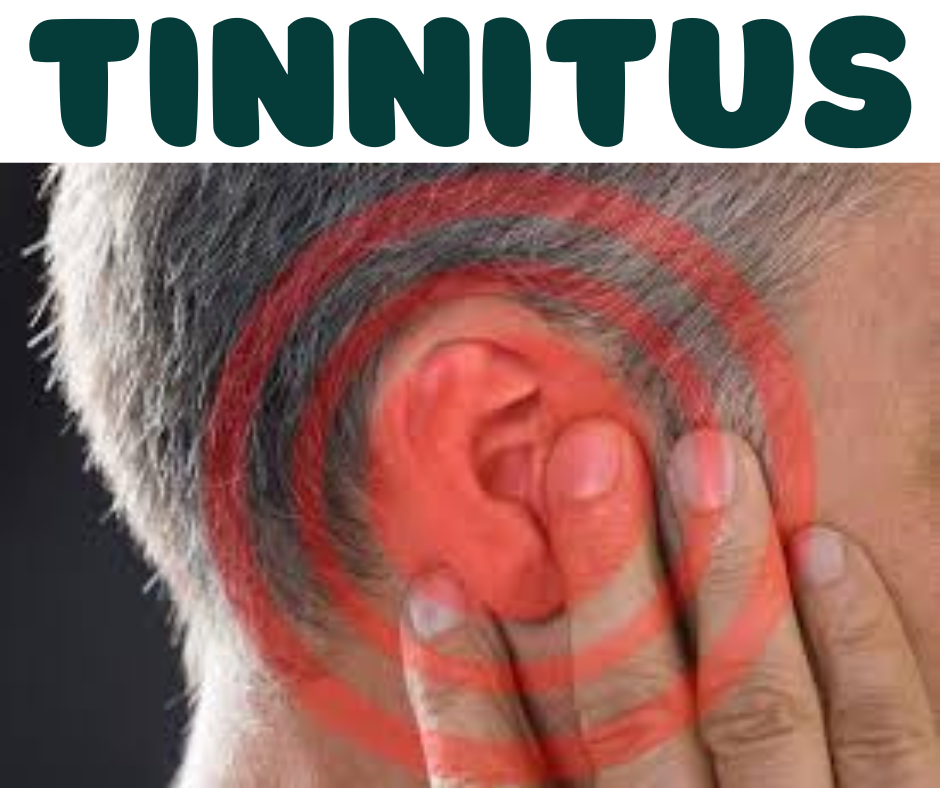Navigating Tinnitus: Understanding the Ringing Within

let’s delve into a topic that affects millions of people worldwide – tinnitus. Tinnitus is the perception of sound in the ears or head without an external source. While not a condition in itself, it can be a symptom of an underlying issue. In this blog post, we’ll explore the causes, symptoms, and effective management strategies for tinnitus.
What is Tinnitus?
Tinnitus is the perception of sound in the ears or head when there is no external source for that sound. It is often described as a ringing, buzzing, hissing, or roaring noise. Tinnitus is not a disease itself but rather a symptom of an underlying condition. This condition can affect one or both ears and may be constant or intermittent.
There are two main types of tinnitus:
- Subjective Tinnitus: This is the more common type where only the person experiencing it can hear the sounds. It is often linked to hearing loss, exposure to loud noises, or other factors affecting the auditory system.
- Objective Tinnitus: In rare cases, a healthcare professional may be able to hear the sounds during an examination. This type is typically associated with vascular or muscular conditions, such as blood vessel disorders or muscle contractions.
Tinnitus can vary in intensity, from a low background noise to a loud, disturbing sound. It can be temporary, such as after exposure to loud music, or chronic, persisting over an extended period.
Common Causes of Tinnitus
Tinnitus can be caused by a variety of factors, ranging from common to more complex issues. Identifying the underlying cause is crucial for determining the most effective management strategy. Here are some common causes of tinnitus:
- Hearing Loss:
- Age-related hearing loss (presbycusis) is a common cause of tinnitus, especially in older individuals.
- Noise-induced hearing loss due to exposure to loud sounds, such as music concerts, construction sites, or loud machinery.
- Earwax Blockage:
- Accumulation of earwax (cerumen) can lead to a blockage in the ear canal, causing tinnitus.
- Noise Exposure:
- Prolonged exposure to loud noises, either through occupational settings or recreational activities, can damage the hair cells in the inner ear and result in tinnitus.
- Medical Conditions:
- Meniere’s Disease: An inner ear disorder that can cause episodes of vertigo, hearing loss, and tinnitus.
- Otosclerosis: Abnormal bone growth in the middle ear, affecting the movement of the stapes bone.
- Temporomandibular Joint (TMJ) Disorders: Issues with the jaw joint can contribute to tinnitus.
- Medications:
- Some medications, such as certain antibiotics, cancer drugs, and high doses of aspirin, may cause or worsen tinnitus as a side effect.
- Cardiovascular Issues:
- Conditions affecting blood flow, such as high blood pressure or atherosclerosis, can contribute to tinnitus.
- Head and Neck Injuries:
- Trauma to the head or neck, especially if it involves the ear structures or the auditory nerve, can lead to tinnitus.
- Anxiety and Stress:
- Emotional factors like stress and anxiety can exacerbate tinnitus symptoms.
- Vascular Disorders:
- Blood vessel disorders, including abnormalities in blood vessels near the ear, can be associated with tinnitus.
- TMJ Disorders:
- Dysfunction of the temporomandibular joint, which connects the jaw to the skull, can lead to tinnitus.
Symptoms of Tinnitus
Beyond the auditory sensations, tinnitus can be accompanied by various symptoms, such as:
- Auditory Sensations:
- Ringing: A persistent or intermittent sound resembling ringing in the ears.
- Buzzing: A low or high-frequency buzzing noise.
- Hissing: A continuous hissing or sizzling sound.
- Roaring: An intense, rushing sound, similar to that of a waterfall.
- Intensity and Persistence:
- Tinnitus can vary in intensity from a subtle background noise to a loud, intrusive sound.
- It may be constant or intermittent, occurring at specific times or in certain environments.
- Sleep Disturbances:
- Tinnitus can interfere with sleep, making it challenging for individuals to fall asleep or stay asleep.
- Concentration Difficulties:
- The presence of constant or distracting sounds may lead to difficulty concentrating on tasks.
- Emotional Impact:
- Tinnitus can cause emotional distress, leading to feelings of frustration, anxiety, irritability, or even depression in some individuals.
- Hearing Difficulties:
- In cases where tinnitus is associated with hearing loss, individuals may experience challenges in hearing and understanding conversations.
- Ear Fullness or Pressure:
- Some people with tinnitus may perceive a sense of fullness or pressure in the affected ear.
- Vertigo or Dizziness:
- In cases where tinnitus is associated with conditions like Meniere’s disease, individuals may experience episodes of vertigo or dizziness.
It’s essential to recognize that the impact of tinnitus can vary from person to person. While some individuals may find it only mildly bothersome, others may experience significant disruption to their daily lives.
Seeking Professional Help
If you or someone you know is experiencing tinnitus, seeking professional help is crucial for an accurate diagnosis and effective management. Here are steps to guide you in seeking professional assistance:
- Schedule an Appointment with an Audiologist or ENT Specialist:
- Start by making an appointment with a qualified healthcare professional who specializes in hearing and ear-related issues. This could be an audiologist or an ear, nose, and throat (ENT) specialist.
- Medical History and Examination:
- During the appointment, the healthcare professional will take a detailed medical history, including any relevant information about your symptoms, past medical conditions, medications, and exposure to loud noises.
- Hearing Evaluation:
- A comprehensive hearing evaluation, which may include audiometry and other tests, will be conducted to assess your hearing abilities and identify any hearing loss.
- Tinnitus Assessment:
- The professional will assess the characteristics of your tinnitus, such as the type of sounds you’re hearing, their intensity, and any associated symptoms.
- Diagnostic Tests:
- In some cases, additional diagnostic tests such as imaging studies (MRI or CT scans) may be recommended to rule out underlying structural issues.
- Identifying Underlying Causes:
- The healthcare professional will work to identify any underlying causes of your tinnitus, such as hearing loss, earwax blockage, or medical conditions.
- Customized Management Plan:
- Based on the findings, the professional will develop a personalized management plan. This may include strategies to address the underlying cause, hearing aids, sound therapy, counseling, or a combination of approaches.
- Follow-Up Appointments:
- Tinnitus management is often an ongoing process. Follow-up appointments will be scheduled to monitor progress, adjust treatments if necessary, and provide support.
- Counseling and Support:
- Some individuals may benefit from counseling or support groups to address the emotional impact of tinnitus. Cognitive-behavioral therapy (CBT) is a common approach to help individuals cope with the psychological aspects of tinnitus.
Remember, seeking professional help is the first step toward effectively managing tinnitus. Early intervention and a collaborative approach between the individual and healthcare professional can significantly improve outcomes and quality of life for those experiencing tinnitus.
Management Strategies of Tinnitus
Managing tinnitus involves a multifaceted approach that addresses both the symptoms and any underlying causes. While there’s no cure for tinnitus, various strategies can help individuals minimize its impact on their daily lives. Here are some effective management strategies:
- Identify and Treat Underlying Causes:
- Work with a healthcare professional to identify and address any underlying causes of tinnitus, such as hearing loss, earwax blockage, or medical conditions like Meniere’s disease.
- Hearing Aids:
- If hearing loss is a contributing factor, wearing hearing aids can improve overall auditory perception and often reduce the perception of tinnitus.
- Sound Therapy:
- White noise machines, fans, or soothing background sounds can help mask the sounds of tinnitus and make them less noticeable. Sound therapy can be particularly useful during quiet periods, such as when trying to fall asleep.
- Counseling and Cognitive Behavioral Therapy (CBT):
- Tinnitus can have a significant impact on emotional well-being. Counseling and CBT can help individuals develop coping mechanisms, change negative thought patterns, and manage stress related to tinnitus.
- Tinnitus Retraining Therapy (TRT):
- TRT combines counseling and sound therapy to help individuals habituate to the sounds of tinnitus, making them less bothersome over time.
- Lifestyle Modifications:
- Adopting a healthy lifestyle can contribute to overall well-being and may indirectly help with tinnitus management. This includes regular exercise, a balanced diet, adequate sleep, and stress management techniques.
- Avoiding Loud Environments:
- Minimize exposure to loud noises, both in occupational and recreational settings. When exposure is unavoidable, use ear protection, such as earplugs or earmuffs.
- Limiting Caffeine and Nicotine Intake:
- Some individuals find that reducing their intake of caffeine and nicotine can have a positive impact on their tinnitus symptoms.
- Medication Review:
- Consult with a healthcare professional to review medications for potential side effects that may contribute to tinnitus. In some cases, adjusting or changing medications may be recommended.
- Support Groups:
- Joining a support group or connecting with others who experience tinnitus can provide a sense of community and shared experiences. Support groups may offer valuable insights and coping strategies.
It’s important for individuals experiencing tinnitus to work closely with healthcare professionals to tailor a management plan that suits their specific needs. Since the impact of tinnitus can vary from person to person, a personalized approach ensures the most effective and sustainable outcomes.
Disclaimer
This blog post is intended for informational purposes only and should not be considered as medical advice. The information provided is based on general knowledge and may not be applicable to individual cases. Consult with a qualified healthcare professional for personalized advice and treatment.
Stay updated—subscribe now for informed empowerment!

